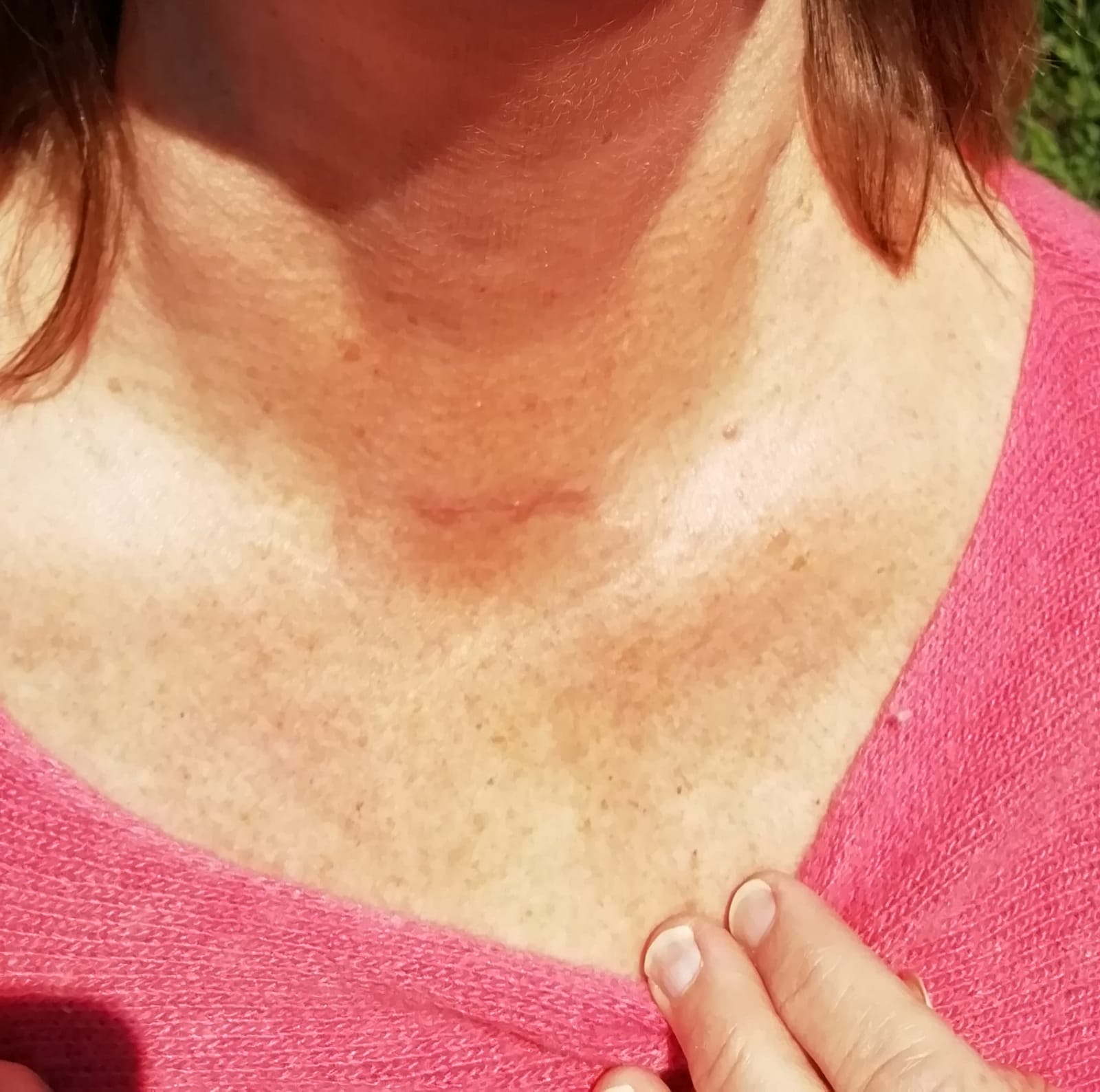What is PTH (parathyroid hormone)?
Parathyroid hormone (PTH) is a hormone (chemical) that your parathyroid glands make and release to control the level of calcium in your blood. Calcium is one of the most important and common minerals in your body. PTH also helps control the levels of phosphate (another mineral) and vitamin D (a hormone) in your blood and bones.
Hormones are chemical messengers. They coordinate different functions in your body by carrying messages through your blood to your organs, muscles and other tissues. These signals tell your body what to do and when to do it.
They are made by ‘endocrine glands’ which control how the body works.
Where are the parathyroid glands?

Most people have four pea-sized parathyroid glands located behind the thyroid gland — the butterfly-shaped gland in your neck.
What are parathyroid glands?
Like your thyroid, your parathyroid glands are endocrine organs that part of your ‘endocrine system’. Sometimes your parathyroid glands are located in your chest. These are known as ‘ectopic’ (in an abnormal place) parathyroid glands.
A gland is an organ makes hormones, or other substances. You have several different types of glands, including sweat glands, endocrine glands and salivary (spit) glands.
The main job of your parathyroid glands is to make parathyroid hormone (PTH). Sometimes, your parathyroid glands can release too little PTH, which lowers the calcium in your blood (hypocalcaemia); or too much PTH, which raises the calcium in your blood (hypercalcaemia). Both of these conditions can lead to serious health problems.
Both can occur in CKD, but too much PTH causing a low blood calcium is the commonest problem (initially).
What does parathyroid hormone do?
Your parathyroid glands release parathyroid hormone (PTH) when your body detects low calcium levels in your blood.

As shown in this diagram, parathyroid hormone regulates calcium levels in your blood by affecting the following parts of your body:
- Bones. Parathyroid hormone stimulates the release of calcium from your bones into your bloodstream
- Kidneys. Parathyroid hormone enables vitamin D (calcitriol) to be activated (strengthened) in your kidneys. PTH also tells the kidneys to lose less calcium in your urine
- Small intestine. Vitamin D (activated by parathyroid hormone) stimulates your small intestine (bowel) to absorb more calcium from the food you eat.
All these three effects of PTH will increase the calcium levels in your blood.
Once your parathyroid glands release PTH when you have low blood calcium levels, the PTH is only active in your body for a few minutes. When your blood calcium levels rise, your parathyroid glands stop releasing PTH.
Parathyroid hormone and CKD
For complicated reasons the blood calcium levels fall in CKD, especially in CKD4-5, i.e. the more advanced stages. The parathyroid glands ‘spot this’ and start making more PTH in an attempt to bring the calcium up to normal. In the short-term is the ‘right’ thing for the body to do. But long-term, as PTH ‘takes’ calcium out of the bones, it weakens them, eventually causing bone pain and even fractures.
This process is called ‘renal bone disease (RBD)‘ or renal osteodystrophy. It is treated by giving the patient calcium (e.g. calcium acetate) and vitamin D (e.g. alfacalcidol) tablets, or a tablet called cinacalcet.
In most people this works. In a few the parathyroid glands start to grow, and the calcium level having been low, becomes high – and they have to be removed in an operation called a parathyroidectomy.

Parathyroidectomy scar
Summary
We have described what is parathyroid hormone. We hope it has been useful. Here are some top tips about what you can do to help yourself.
Other resource
What is a parathyroidectomy?
Functions of kidney: vitamin D activation
Top Tips for patients to prevent parathyroid problems
There are things you can do to help:
- Blood tests. If you are in CKD4 or higher, have your blood calcium and phosphate measured at least every 3 months, and PTH every 6 months. Ask your doctor what the results show and whether you need any treatment
- Take medication. If you are prescribed tablets like calcium acetate and alfacalcidol, take them carefully.
https://www.youtube.com/watch?v=VSqOQsNP02k
Last Reviewed on 23 June 2024
